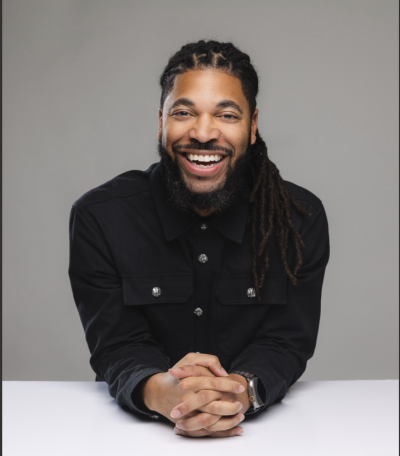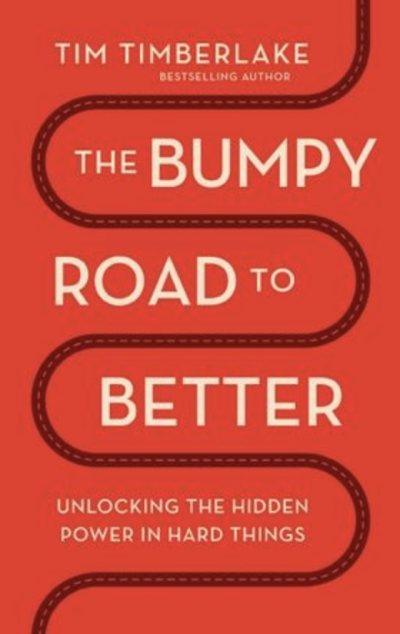
Tim Timberlake has a message for Christians, particularly those in the West, looking for comfort: discomfort may be precisely what is needed.
In his new book, The Bumpy Road to Better, the 41-year-old bestselling author and senior pastor of Celebration Church in Jacksonville, Florida, challenges the notion that faith is a way around life’s hardships. Instead, he invites readers to walk through them, head-on, hand-in-hand with Jesus.
In an interview with The Christian Post, Timberlake said he’s not out to offer simple solutions or spiritual clichés but clarity. Pain has purpose, he said, and avoiding it prohibits growth. He believes the Christian life is less about dodging hardship and more about learning to steward it well.
“I don’t know if it was one bump,” Timberlake said, reflecting on the book’s origin, “or just a lifetime of different bumps and hurdles and obstacles and debris that’s been in the road on this journey called life that inspired it.”
In The Bumpy Road to Better, Timberlake outlines 22 “hard things” that every person will eventually face, including doubt, criticism, pain, delay and sacrifice. But instead of simply gritting one’s teeth and pushing through, he encourages readers to embrace difficulty as a gift.
“There’s great power hidden in the things we’re trying to avoid,” he explained. “When we unlock the strength and the power in hard things, I believe those things benefit us a lot deeper, a lot richer and a lot more meaningful than if things were easy.”
According to the pastor, anticipated pain is easier to endure than unexpected pain.
“When we can anticipate and expect hardship and pain, I believe we have a little bit more leniency with our mental stamina,” he said. “But when the bumps in the road arrive unannounced, we struggle.”
The solution is to build “margin” for hardship within the heart, Timberlake emphasized, and faith must be practiced and conditioned to meet life’s unexpected trials with resilience.
“It’s ike when you work out. You hit that pain threshold and you start to talk to yourself in third person. Your mind wheels your body into submission, and it reminds you of the goal,” he said.
Still, even the strongest faith is not immune to doubt.
“For instance, one of the greatest things I struggle with, even today, is doubt,” Timberlake reflected. “Not my disbelief in God … but depending on how big the bump is in the road, I ask myself the question, is God good in this situation, and will God do it for me?”
Timberlake finds comfort in the biblical story of the desperate father who pleaded with Jesus: “I believe, help my unbelief.”
“Life has this crazy way of giving us what I call faith fatigue,” he said. “It’s not that we don’t believe. We bring ourselves to the conclusion that maybe what we’re believing for can’t happen for us, but maybe it can happen for someone else.”
His book, he says, is for those still believing, but barely. “It’s just a tool, a resource, to help those on this weary journey to remain, to endure, and to have sustaining power to get from where you are to where I believe God desires for you to be.”
But how do Christians reconcile a good God with so much suffering, like the recent flooding in Texas, which resulted in at least 132 confirmed deaths, including children from a Christian summer camp, and an additional 101 people still missing?

“There’s questions that all of us have that we will never get the answers to on this side of eternity,” he said. “But God’s goodness does not sway to the left or to the right. It remains.”
The problem, according to the pastor, is not God but where one has anchored their faith.
“Oftentimes we lose faith because our faith was anchored in something instead of someone,” he said.
For Timberlake, that lesson became painfully real when his father, also a pastor, died the day after his 18th birthday, an event he recounted in his previous book, The Power of 1440.
“My question for God was, ‘Where are you? How could this happen to me?’ And God simply told me … ‘I don’t live up to your expectations, but I always live up to my word.'”
Timberlake doesn’t shy away from critiquing modern Christianity, especially the version preached in many Western churches.
“Westernized culture, and to make it a little more specific, the westernized church, teaches a doctrine that would have us believe that when we follow Christ, then things should work out the way we want them to,” he said. “That theology is just not sound.”
He points to Hebrews 11 as evidence. While Christians often focus on the victories in the chapter’s first half, Timberlake emphasized the back half, the believers who “died in faith” without receiving the promises.
“They died holding on to the faith they had anchored in,” he said. “We don’t get disappointed by what happens to us. We get disappointed by what we expected not to happen to us.”
Not every challenge comes in the form of tragedy. Some come as feedback, or worse, criticism. In The Bumpy Road to Better, Timberlake offers a personal filter for discerning whether to take it seriously: How close am I to this person? Do they have God’s heart for my future? Are they doing what they’re criticizing me for better than I am?
If the answer is no, Timberlake said, he lets it go.
“But if that person is close to me and has God’s heart for my future,” he explained. “then I become a student.”
The pastor said he takes a similar approach to sacrifice, another deeply countercultural idea.
“We trust in our own ability, because we know the outcome,” he said. “But real trust in God often involves stepping into the unknown.”
“We don’t understand how little control we have until we lose control of what we thought we had control over,” Timberlake added. “And clenched fists, whether holding onto dreams, habits or even relationships, can’t grasp the better things God wants to give.
“Maybe there are some things that you’ve been holding on to that God wants you to release. And maybe there are some things you’ve prematurely released that God wants you to steward differently.”
For churches that are often more concerned with comfort than conviction, Timbrlake offered the reminder: “Scripture never asks us how we feel. It never asks us, do we agree? It never asks us, ‘Does this make you comfortable?'”
“The Word of God is truth,” he stressed. “And when it is applied, the truth sets us free.”
He challenged leaders and believers alike to embrace the discomfort of godly conviction. “There are very good things that come from godly conviction,” he said, “and very bad things that come from leaning into comfort over that conviction.”
Timberlake quoted the Apostle Paul, who, near the end of his life, wrote: “I am being poured out like a drink offering.”
“My prayer is that we live our lives full and die empty,” he told CP. “Because we were good down to the last drop.”
Leah M. Klett is a reporter for The Christian Post. She can be reached at: leah.klett@christianpost.com

















